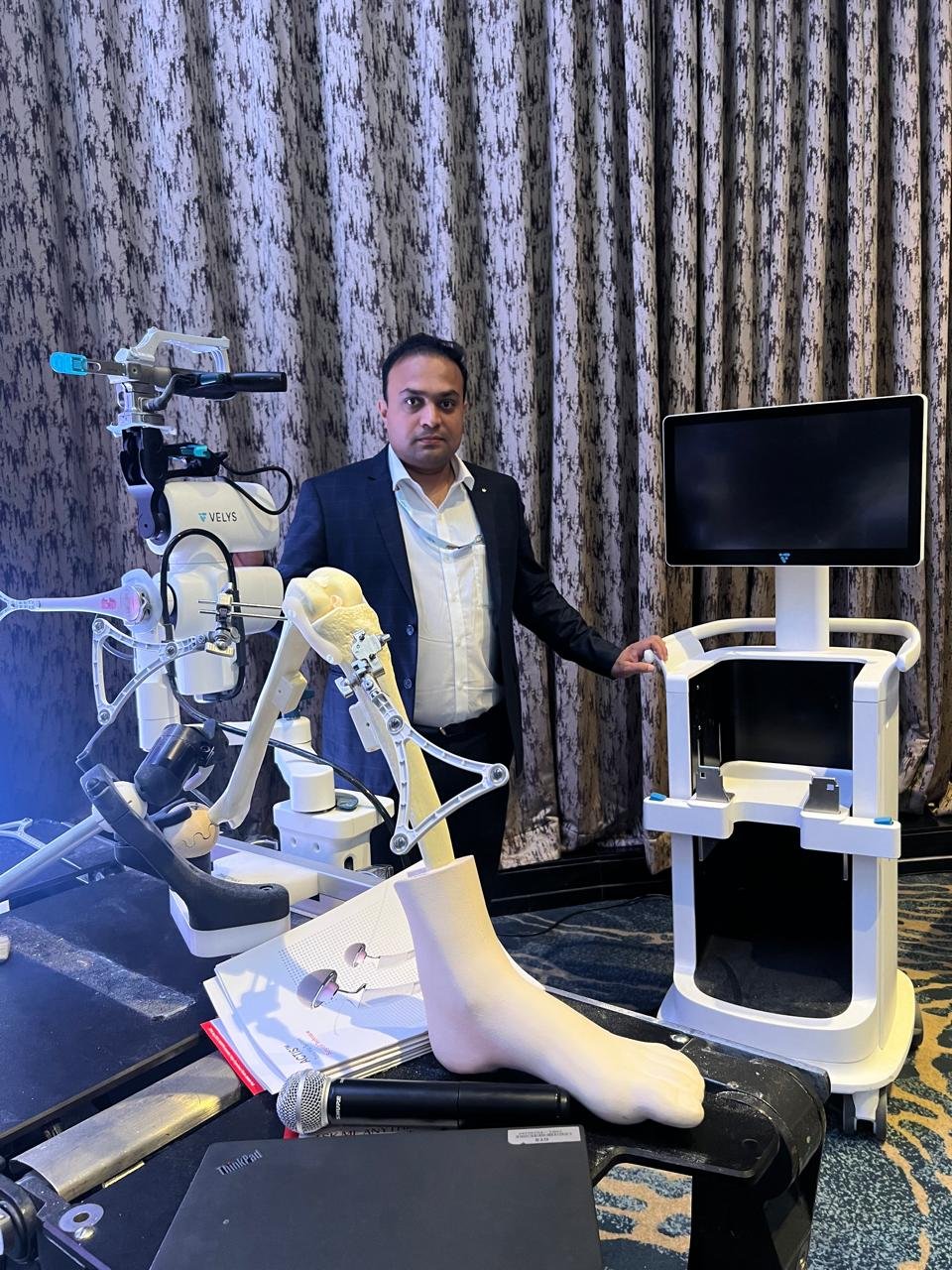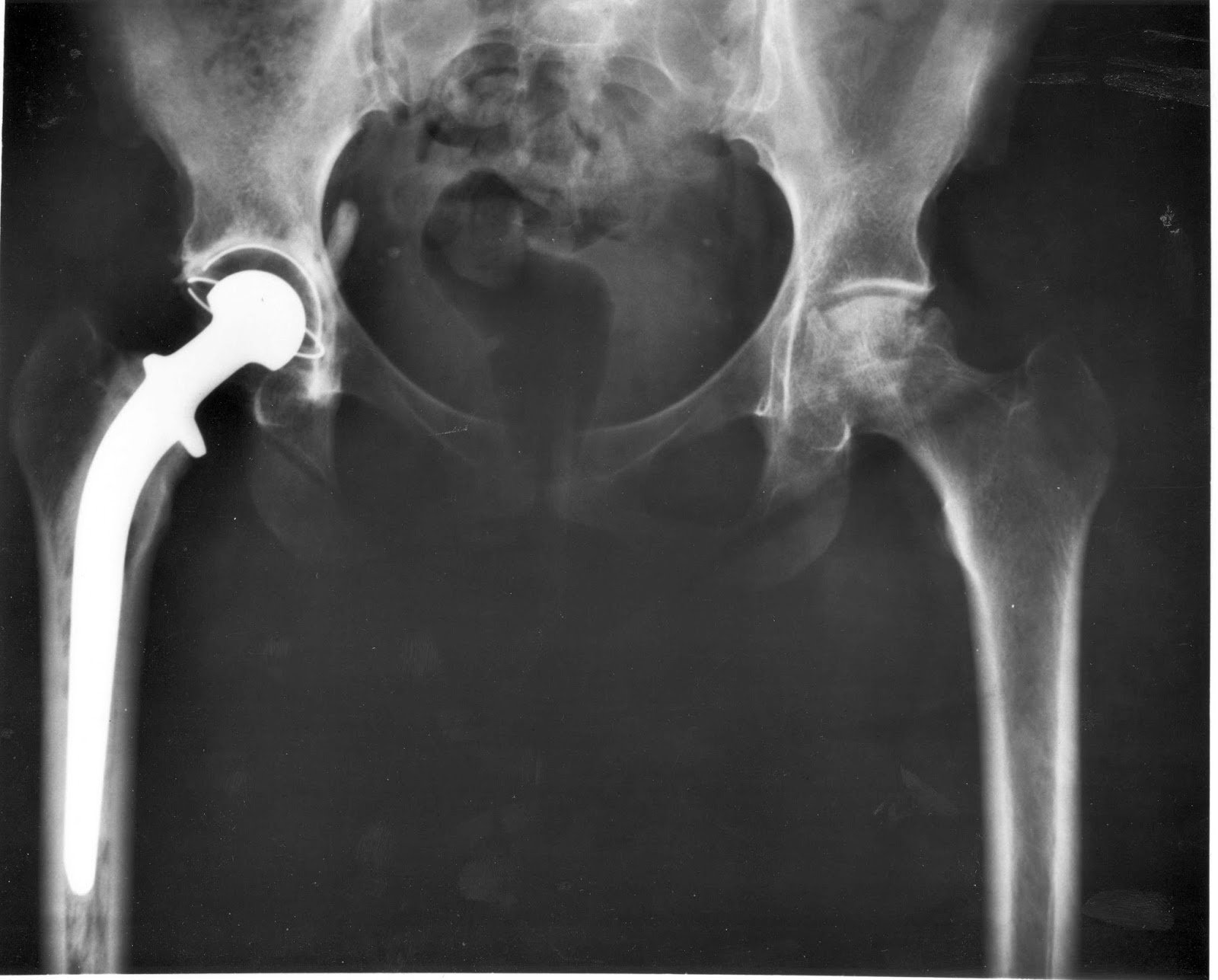Meet Our Doctor

Dr. Prajaktam M. Lende
ORTHOPAEDIC & JOINT REPLACEMENT SURGEON
Fellowships
- Navigation Based Joint Replacement Surgery (Hip & Knee Arthroplasty)
- Arthroscopy & Sport Medicine
- Ilizarove Surgery
- Observer Ship in Pediatric Orthopaedic Surgery (Wadia Hospital, Mumbai)
Best Hip Replacement Surgeon In Nagpur
Home / Best Hip Replacement Surgeon In Nagpur

Best Hip Replacement Surgeon
Hip replacement is extremely triple-crown surgery during which parts of the ball-and-socket joint ar replaced with prostheses (implants). Hip replacement, additionally referred to as hip operation, could be a surgery to deal with hip pain.
The surgery replaces components of the ball-and-socket joint with artificial implants. The ball-and-socket joint consists of a ball (at the highest of the thighbone, additionally referred to as the thigh bone) and a socket (in the pelvis, additionally referred to as the hip bone). Hip replacement surgery includes replacement of 1 or each components. The goal of the procedure is to permit you to resume daily activities and exercise with less pain.
Why it’s done
Conditions which will harm the ball-and-socket joint, typically creating hip replacement surgery necessary, include:
Osteoarthritis: normally referred to as wear-and-tear inflammatory disease, arthritis damages the slick gristle that covers the ends of bones and helps joints move swimmingly.
Rheumatoid inflammatory disease: Caused by Associate in Nursing hyperactive system, arthritis produces a kind of inflammation which will erode gristle and sometimes underlying bone, leading to broken and distorted joints.
Osteonecrosis: If there’s not enough blood equipped to the ball portion of the ball-and-socket joint, like would possibly result from a dislocation or fracture, the bone would possibly collapse and deform.
Hip Replacement may be required If hip pain:
Persists, despite pain medication
Worsens with walking, even with a cane or walker
Interferes with sleep
Affects the power to steer up or down stairs
Makes it tough to rise from a seated position
Risk
Risks related to hip replacement surgery will include:
Blood clots. Clots will kind within the leg veins once surgery. {this will|this will|this could|this may} be dangerous as a result of a chunk of a clot can break off and trip the respiratory organ, heart or, rarely, the brain. Blood-thinning medications will scale back this risk.
Infection. Infections will occur at the positioning of the incision and within the deeper tissue close to the new hip. Most infections ar treated with antibiotics, however a serious infection close to the new hip would possibly need surgery to get rid of and replace the factitious components.
Fracture. throughout surgery, healthy parts of the ball-and-socket joint would possibly fracture. typically the fractures ar sufficiently little to heal on their own, however larger fractures would possibly have to be compelled to be stabilised with wires, screws, and probably a metal plate or bone grafts.
Dislocation. sure positions will cause the ball of the new joint to come back out of the socket, notably within the initial few months once surgery. If the hip dislocates, a brace will facilitate keep the hip within the correct position. If the hip keeps dislocating, surgery could also be required to stabilize it.
Change in leg length. Surgeons take steps to avoid the matter, however often a brand new hip makes one leg longer or shorter than the opposite. typically this can be caused by a muscular contraction of muscles round the hip. In these cases, more and more strengthening and stretching those muscles would possibly facilitate. little variations in leg length sometimes are not noticeable once a couple of months.
Loosening. though this complication is rare with newer implants, the new joint won’t become solidly fastened to the bone or would possibly loosen over time, inflicting pain within the hip. Surgery may well be required to mend the matter.
BEST HIP REPLACEMENT SURGEON
Dr Prajaktam Lende is the best hip replacement surgeon in Nagpur. Hip replacement surgery may be the choice after no pain relief with conservative treatment or advanced stage of arthritis on presentation. Hip replacement surgery is also known as Total Hip arthroplasty. This type of surgery used to replace worn out or damaged hip joint with an artificial joint also called prosthesis.
Types of Hip Joint Arthritis
Osteoarthritis: This type of arthritis occurs in middle aged and older adults. This is age related wear and tear in both the adjacent bone in the hip.
Rheumatoid arthritis: This kind of arthritis causes inflammation of the synovial lining of the joint. This may lead to severe pain and stiffness.
Traumatic arthritis: Arthritis occurred following injury. It is caused by damage the hip cartilage.
Hip replacement surgery replaces the damaged bearing surfaces of hip joint. It also helps to relieve the severe pain which is not relieved with medications by medication.
Need For Hip Replacement Surgery?
Hip replacement surgery is primarily done to relieve pain in hip joint and to restore normal bio mechanics of the hip joint. The most common reason for hip arthroplasty in India is arthritis followed due to vascular necrosis of the femoral head. This is caused to the damaged blood supply to the femoral head. It leads to cartilage and bone damage and limits joint movement. These movements include walking and sitting.
Other types of arthritis like rheumatoid arthritis and arthritis that results from a hip injury can also damage the hip joint.
What are the benefits of a hip replacement?
Relief from pain is the greatest benefit and the major reason for hip replacement surgery. The procedure offers other benefits, including:
- Improved movement.
- Improved strength.
- Improved coordination of the torso and leg.
- The ability to walk, climb stairs and maintain an active lifestyle in greater comfort.
After hip surgery
surgical advances mean shorter hospital stays after surgery. In most cases, you’ll begin standing and walking with support the day of your surgery. You’ll likely be able to go home within 24-48 hours. Before you’re discharged from the hospital, your care team will ensure that you’re able to:
- Use the bathroom without assistance
- Walk with an assistive device on level surfaces
- Climb up and down two or three steps
- Perform exercises that your doctor wants you to do at home
What are the different types of hip replacement surgery?
The three major types of hip replacement are:
- total hip replacement (most common)
- partial hip replacement
- hip resurfacing
The most common type of hip replacement surgery is called a total hip replacement (also called total hip arthroplasty). In this surgery, worn-out or damaged sections of your hip are replaced with artificial implants. The socket is replaced with a durable plastic cup, which may or may not also include a titanium metal shell.
What kind of healthcare provider performs hip replacements?
If a hip replacement is the best treatment for you, your healthcare provider may send you to an orthopaedic surgeon for evaluation. Your orthopaedic surgeon will evaluate your hip joint with a full physical exam and X-rays and develop a treatment plan for how surgery can best benefit you.
Are There Risks Associated With Joint Replacement?
Any surgery has risks. The risks of joint surgery will depend on your overall health and the health of your joints before surgery, and the type of surgery done.
After surgery, it is important to follow your doctor’s advice about what to eat, how to take your medicines, and how to exercise. Talk with your doctor about any pain or trouble moving.
Joint replacement is usually a success in most people who have it. When problems do occur, most are treatable. Possible problems include: infection, blood clots, loosening of the new joint, and nerve and blood vessel injuries.
Best AVN treatment In Nagpur
Dr. Prajaktam Lende is a trusted Orthopedic doctor In Nagpur. Top joint Replacement surgery Doctor in Nagpur. Book an Appointment with Dr Prajaktam M. Lende, one of the prominent orthopaedic surgeon specialised in Joint Replacement surgery and ligament Reconstruction surgery Dr Prajaktam M. Lende at Nagpur. He is currently associated with the Orthopedic & Joint …
